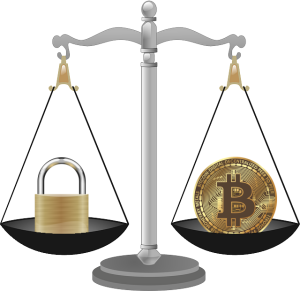Examining the Stability and Safety of Crypto Coins in Today’s Marketplace.

The volatile prices of the original Bitcoin, and the multitude of successive altcoins, have made crypto currencies regular headliners in financial news columns. What was intended to be a faster, simpler, and overwhelmingly cheaper means of monetary transaction, is now every investor’s wet dream, or all-too-vivid nightmare, depending on their point of view. For those who are newly attempting to understand the core principles of digital tokens, the question is not one of value or worth, but safety and stability.
If we were answering these questions a decade ago, when Bitcoin was still fresh off the virtual presses, the prospectus would be quite different. Fortunately, we live in a very different world today. Advancements in technology and security are spearheading the cryptographic revolution. As with any fin-tech enterprise, however, the vulnerability of digital currency often has everything to do with the intelligence and due diligence of its user.
Safety of Crypto – How Secure is Bitcoin Today?
In terms of security, Bitcoin and altcoins are perfectly safe. That is, assuming the individual that is transacting in crypto coins doesn’t do anything stupid. Please do not take offense to that statement. I’m just being realistic. The safety of your crypto is far more dependent on you – the user – than anything or anyone else.
Think of it this way. You wouldn’t write your PIN on your debit card. That wouldn’t be very sensible, now would it? If you lose the card, whoever finds it can trapse off to the nearest ATM or department store and use it. Likewise, you wouldn’t give out the login and password to your online bank account. That would be stupid, right? Well, crypto works the same way.
Keeping Your Crypto Safe
All crypto coins are stored in a hard or soft digital crypto wallet. Every wallet has a passkey, or passphrase, to access its contents. So long as you keep that passkey safe, and don’t give it to anyone else, your digital tokens are perfectly safe.
Transferring crypto between wallets? Also perfectly safe. Transactions are secured with extremely sophisticated technologies, similar to the state-of-the-art encryption technology used to transfer fiat currencies when you make a purchase with a bank transfer, debit card, or eWallet.
A public blockchain ledger keeps record of all transactions. You or anyone else can view that ledger anytime. The ledger does not record or display any personal information; only information regarding the tokens and wallet IDs in a transfer. This is how the crypto market maintains veritable anonymity. However, it may be possible to trace a specific coin or wallet ID to a location, which can potentially identify the person at the end of the wallet. This is why most crypto are not 100% anonymous. And that’s where Privacy Coins come into play.
Added Safety of Privacy Coins: Fungibility = Anonymity
A privacy coin is a digital coin that is fungible. That means its coins have no unique identification marks. One coin can be replaced for another, and you’d never know it. For example, every Canadian Dollar has a serial number on it. It is not fungible, because we can identify and trace it by that number. Most crypto currency, including Bitcoin [BTC], has a digital serial number too.
Every standard coin can be traced back through every wallet that’s held or transferred it. In this way, a single Bitcoin can become tainted. Let’s say someone uses BTC to buy illegal merchandise online. The blockchain has a record this transaction. So, the coin(s) revolving around that transaction may receive a mark; a digital demarcation that the coin is tainted. From that point on, anyone attempting to spend that non-fungible BTC may find their transaction declined, due to the use of a tainted coin.
Coins that boast fungibility are not identifiable, and therefore not subject to scrutiny of past usage. Fungible privacy coins, including Monero [XMR] and Verge [XVG], offer total anonymity by allowing the user to transact in ‘Wraith Protocol‘. The only thing that goes on public record in Wraith mode is the size of the transaction. Thanks to impenetrable encryption technologies, no other information is visible.
Stability of Bitcoin and Altcoin
Stability is a whole other matter, apart from safety and security. The stability of a crypto refers to the fluctuation in its value. As you probably know, Bitcoin is among the least stable coins on the market. Its price range is truly incredible, scaling from far less than a single penny, to well over CA$75,000, since inception. It was not a direct incline, by any means. The financial ticker for BTC reads very much like an erratic heart beat.
Many of today’s top crypto coins are similarly volatile (i.e. unstable). Their values are far below that of Bitcoin, but the instability remains. Ether [ETH], Litecoin [LTC], Dogecoin [DOGE], they all experience mass fluctuation in market value.
For some users, high volatility is exactly what the doctor ordered. These are generally investors; some being in it for the long haul, and others simple day traders looking for a quick profit. But not everyone thrives on the wild unpredictability of digital tokens like Bitcoin.
True Stable Crypto Coins
If its ultimate stability you seek, there are a number of crypto coins that provide it. The most famous is Tether [USDT]. As its name and abbreviation imply, USDT is tethered to the U.S. Dollar. Thus, its value consistently mimics US$1.00. It may sway ever so slightly between US$0.99 and $1.01, but that’s as far as it goes. Due to its wide availability at crypto casinos, anyone looking to gamble with a stable coin would do well to purchase and deposit in USDT.
This should go without saying, but I’ll put it out there anyway to avoid any misunderstanding. Stable coins are not good for investing. Their value will always be tethered to their respective fiat currency, to be determined only by economic growth and real-world inflation.
The only real benefit to dealing in stable coin is that the value at which you buy it, will be relatively the same as the value in which you sell it. For crypto gambling, stable coins provide users with the guarantee that their coins will be worth the same value at both stages of deposit and withdrawal.
